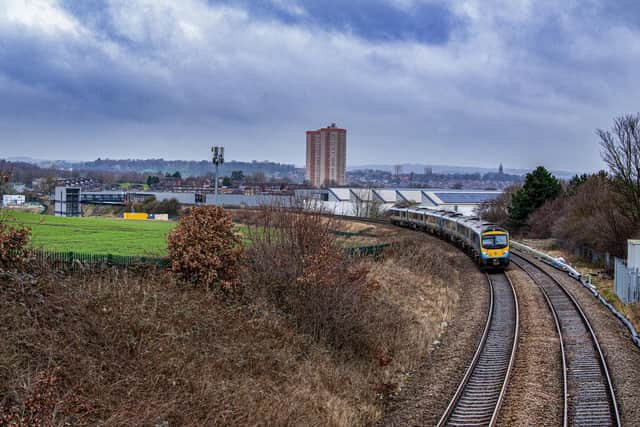Better connectivity and transport will be a key part of the North’s economic transformation - Martin Tugwell
The Strategic Transport Plan (STP), adopted by Northern leaders on March 20, is grounded in extensive engagement and work with the North’s mayors and political leaders, local transport authorities, businesses, community groups and residents.
Poor connectivity is holding back the North, often constraining growth, impacting our environment and making it difficult for individuals to access opportunities. Too many people in the North cannot access key services, such as health care; or opportunities linked to training or employment, or even community life simply because of failings with our transport system.
Advertisement
Hide AdAdvertisement
Hide AdWe aim to change that. Our vision is that by 2050 the North of England will have become a thriving, socially inclusive region. Our communities, businesses and places will all benefit from sustainable economic growth, improved health and wellbeing, and access to opportunities for all. This will be achieved through a transformed zero emission, integrated, safe and sustainable transport system, that will enhance connectivity, resilience, and journey times for all users.


The productivity gap between the North and the rest of England continues to widen. Our economic potential is huge, but we need the right investment and policy levers alongside transformational transport infrastructure and services to achieve this.
Our new Strategic Transport Plan, which builds on the first plan published five years ago, lays the foundations for pan-regional transport investment for the North for decades to come – an efficient, high-quality, inter-connected and decarbonised transport system, one that connects people and places and will support growth and employment opportunities.
The plan focuses on the issues that are common to many partners across the North and where there is efficiency in tackling them at a pan-regional level. It signals the need for strategic investment by public and private sector partners. And is based on evidence and provides an outcome focused, place-based and user centric ‘case for change’: one that supports our Local Transport Authority partners as they prepare their local transport plans.
Advertisement
Hide AdAdvertisement
Hide AdBuilding upon the devolution that has already taken place, with sustained investment, the right policy levers in other areas, such as skills and R&D, and by enabling behaviour change, we believe we can genuinely ‘level up’ the North with inclusive, sustainable growth.
The STP supports the delivery of TfN’s Decarbonisation Strategy - our pathway for near zero emissions from surface transport in the North of England by 2045. We have a legal and moral obligation to decarbonise our transport network. But we must also recognise that more economic growth means more travel and that increased mobility is at the heart of social mobility. And so, we must change the way we invest in our transport system if it is to be sustainable.
Our plan recognises that transport investment alone will not achieve our collective vision: there is a need for system reform to the way we plan, develop, and deliver transport infrastructure and services. Reform is needed to simplify processes, remove inertia, and enable more decision making closer to the people and places it affects.
Martin Tugwell is chief executive of Transport for the North (TfN).
Comment Guidelines
National World encourages reader discussion on our stories. User feedback, insights and back-and-forth exchanges add a rich layer of context to reporting. Please review our Community Guidelines before commenting.